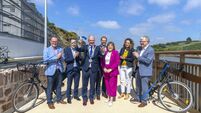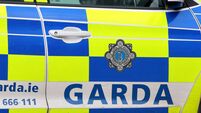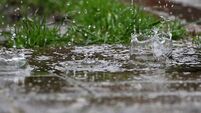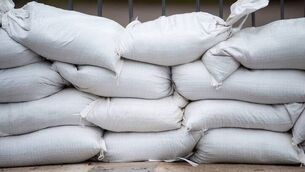Copper Coast walking trails refused due to wildlife concerns
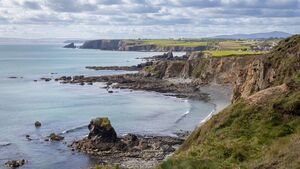
Cliffs at The Copper Coast, County Waterford
A series of walking trails along the Copper Coast have been refused permission by An Bord Pleanala.
Waterford City and County Council sought approval from the board to develop a series of walking trails and ancillary works along the Copper Coast UNESCO Global Geopark, between Stradbally and Bunmahon.
Three trails in total were planned. Trail one proposed to go from Stradbally to Killeton (4.5km), trail two along Ballydowane Beach (1.1km) and trail three, from Cooneennacartan to Trá na mBo (2km).
Also proposed, was a viewing platform overlooking Ballydowane Beach. Fencing, stiles, bridges, wayfinding signs, information boards and benches were also planned along the trail routes.
A number of submissions and observations from concerned parties were received which outlined that the development could adversely affect bird species in the area.
The Department of Housing, Local Government and Heritage outlined that potentially, 18 per cent of the clough Special Protection Area (SPA) population could be affected.
The Department also noted that the year-round use of the trails, with increased numbers of walkers at the most sensitive time (breeding and post fledging), will adversely affect seven kilometres of SPA used by clough. Potential disturbances to breeding peregrine falcon and herring gull was also raised.
An additional submission was received from Mr Declan McGrath, an author who has published several texts on habitats and wildlife found in Waterford.
One of these texts, titled ‘A guide to the Waterford Coast’, accompanied his submission to An Bord Pleanala.
An Bord Pleanala planning Inspector Adrian Ormsby said: “While I have obviously and understandably not read this book in its entirety, I have read what I consider are relevant aspects for the purposes of this assessment.”
Mr McGrath’s detailed submission presents information on seabirds of the mid-Waterford coast based on personal involvement in breeding seabird survey and local knowledge of the ecology of the area.
He raised similar concerns to that of the Department and infused his points with local knowledge and evidence from scientific literature. He considers that the proposed trails will result in disturbance to birds of conservation interest and loss of foraging habitat.
Mr McGrath outlined that the trails could have ‘serious adverse consequences for the Clough ‘ and could result in the gradual decline and eventual loss of the species entirely from east Waterford.
He also cited that kestrel, ravens and peregrine falcons are likely to the subjected to disturbances from the proposed development and says that high levels of human disturbance already exist from access at Bunmahon Bay.
In deciding to refuse permission for the development, the board said: “There are inadequacies in terms of assessments of Special Conservation Interest (SCI) features of peregrine falcon in particular.
"In addition, the proposal would be likely to result in a significant decrease in the range, timing and intensity of use of areas by individual bird specials most notably the Clough.”
